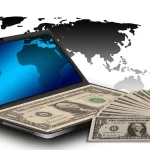10 Tips of the Week for a Successful Patent Prosecution
- November 16, 2023
- By Sarita Thomas
- Read 3 minutes
In the ever-evolving landscape of intellectual property law, the role of a patent specialist or a patent analyst, who provides patent prosecution support to attorneys of specific jurisdictions, extends beyond the traditional boundaries of technological advice. It encompasses a deep understanding of emerging technologies and the ability to navigate the intricacies of patent law in a way that aligns with these advancements. A recent case in point is the United States Patent and Trademark Office’s (USPTO) granting of a group of patents this week related to systems and methods involving machine learning for managing and analyzing data in databases, particularly in the context of medical insurance for rare diseases.
These patents, granted after a rigorous examination process, exemplifies the intersection of cutting-edge technology and IP law. These patents highlight the importance of machine learning in database analysis, particularly in the niche area of medical and insurance data management. The patent showcases a sophisticated application of technology in a field that is of immense societal value, thereby opening new avenues for innovation and patenting in the healthcare sector.
As patent analysts, it is crucial to extract actionable insights from such cases. These insights not only inform our legal strategies but also guide our clients – innovators and technologists and patent attorneys – in navigating the patent landscape more effectively. In the following sections, we delve into the specifics gathered from these granted patents and derive key guidelines that can shape the approach of patent analysts in similar contexts. From understanding the nuances of novelty and non-obviousness to advising clients on patent drafting strategies, these insights are tailored to aid patent professionals in staying ahead in a rapidly changing technological world.
Actionable Guidance for Patent Analysts
1. Analyze Novelty and Non-Obviousness:
These patents were allowed because the prior art did not teach or suggest the specific combination of elements in the claims. Patent analysts should use this as a case study to understand how combining various elements can lead to a novel invention.
2. Advise Clients on Similar Technologies:
For clients working in smart tech fields, highlight the importance of technological aspects and the specific application in industrial sectors.
3. Patent Drafting Strategy:
When drafting patents for smart technologies, focus on clearly defining the technical problem and the inventive step that differentiates the invention from prior art. Emphasize the specific functionalities and the benefits they provide.
4. Prior Art Searches:
Conduct thorough prior art searches in the fields to ensure the uniqueness of future patent applications.
5. Client Counseling on Patent Strategy:
Advise clients on developing a comprehensive patent strategy that not only protects their core technology but also covers various implementations and applications.
6. Review Amendments and Interviews:
Note the effectiveness of examiner interviews and amendments in the prosecution process. Consider adopting similar strategies in future patent prosecutions to effectively address examiner concerns.
7. Leverage Technology-Specific Insights:
Understand the specifics of technological applications in different sectors. This can aid in providing more tailored advice to clients developing technology in these areas.
8. Examine Claim Construction:
Focus on how you construct the claims, especially how specific terms and phrases are used to define the scope of the patent. This can be crucial in infringement analysis and litigation.
9. Stay Informed on Legal Developments:
Keep abreast of legal developments and USPTO policies related to AI, machine learning, and healthcare technologies, as these areas are rapidly evolving.
10. Educate Clients:
Inform clients about the importance of detailed descriptions and claims in their patent applications, especially when dealing with complex technologies like machine learning and big data.
These granted patents provide a valuable learning opportunity for patent professionals, particularly in terms of claim construction, addressing non-obviousness, and effective prosecution strategies. Keeping abreast of such developments can significantly enhance the services provided to clients in the tech and healthcare sectors.
US11,817,189B1 is one of the sets of patents studied for the purpose of writing these tips.
Sarita Thomas
Latest Blogs
Blog Categories
- Intellectual Property (IP) Strategy (85)
- Intellectual Property Asset Management (IPAM) (17)
- IP Monetization (4)
- IP News (7)
- Patent Drafting (2)
- Patent Litigation (6)
- Patent Prosecution (8)
- Patenting (18)









No comment yet, add your voice below!